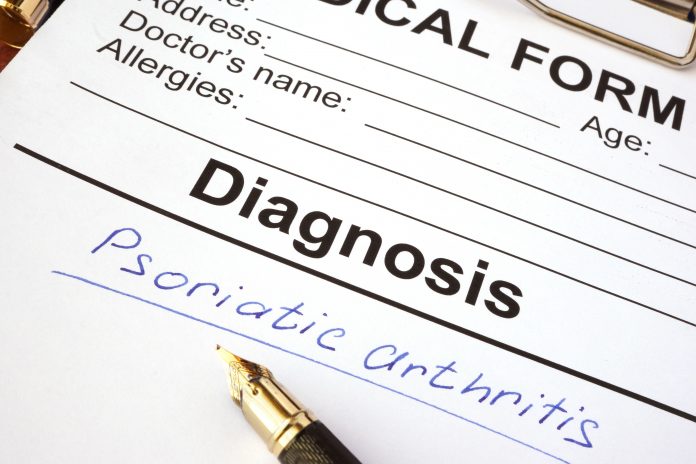A recent study analyzed the prevalence of and factors associated with sleep disturbances, fatigue, and anxiety/depression among psoriatic arthritis (PsA) patients.
Decreased health-related quality of life (HRQoL) has been previously reported among PsA and psoriasis patients, although it is more common among the former. It’s important for PsA patients to achieve both skin and musculoskeletal improvements in order to improve HRQoL.
“The aim of this cross-sectional study was to illuminate the prevalence of sleep disturbances, fatigue, and anxiety/depression in PsA patients in an outpatient clinic and to explore associations with demographic characteristics, and activity measures reflecting skin, musculoskeletal involvement, and comorbidities,” the study authors wrote.
They assessed 137 PsA outpatient clinic patients in Norway. Data collection included demographics, disease duration, C-reactive protein (CRP), clinical measures reflecting musculoskeletal inflammation (68 tender joint count (TJC68), 66 swollen joint count (SJC66), Maastricht Ankylosing Spondylitis Enthesitis Score (MASES), visual analog scale (VAS) pain score, the modified Health Assessment Questionnaire (mHAQ), exercise, and comorbidities. A 10-point numeric rating scale was used to assess sleep disturbances and fatigue, defined as a score ≥5; a 3-point question was used to determine anxiety/depression, with 1 representative of no anxiety/depression.
Patients had a mean age of 52.3 years and PsA disease duration of 8.8 years. Just under half of the cohort was male (49.6%), while just over half were currently employed (54.8%). More than a third of patients reported sleep disturbances (38.0%) and anxiety/depression (38.0%); 44.5% reported fatigue.
Univariate analysis observed a significant relationship between sleep disturbance and female gender, higher body mass index, smoking, not currently working, TJC68, MASES score, pain, fatigue, anxiety/depression, higher mHAQ, and less exercising. Factors associated with fatigue included female gender, not being employed/working, TJC68, MASES score, pain, sleep disturbances, anxiety/depression, and mHAQ. A correlation was observed between anxiety/depression and smoking, mHAQ, not currently working, pain, fatigue, and sleep disturbances.
The study was published in Arthritis Research & Therapy.
“Our data highlights the need for clinicians to be aware of the presence and importance of these domains, judged by patients to be of particular importance, and take them into account when treating PsA patients because focusing only on objective measures reflecting disease activity in the follow-up of PsA patients would give a false impression of the burden of the disease for the PsA patients,” the study authors concluded.
Credit: Original article published here.










